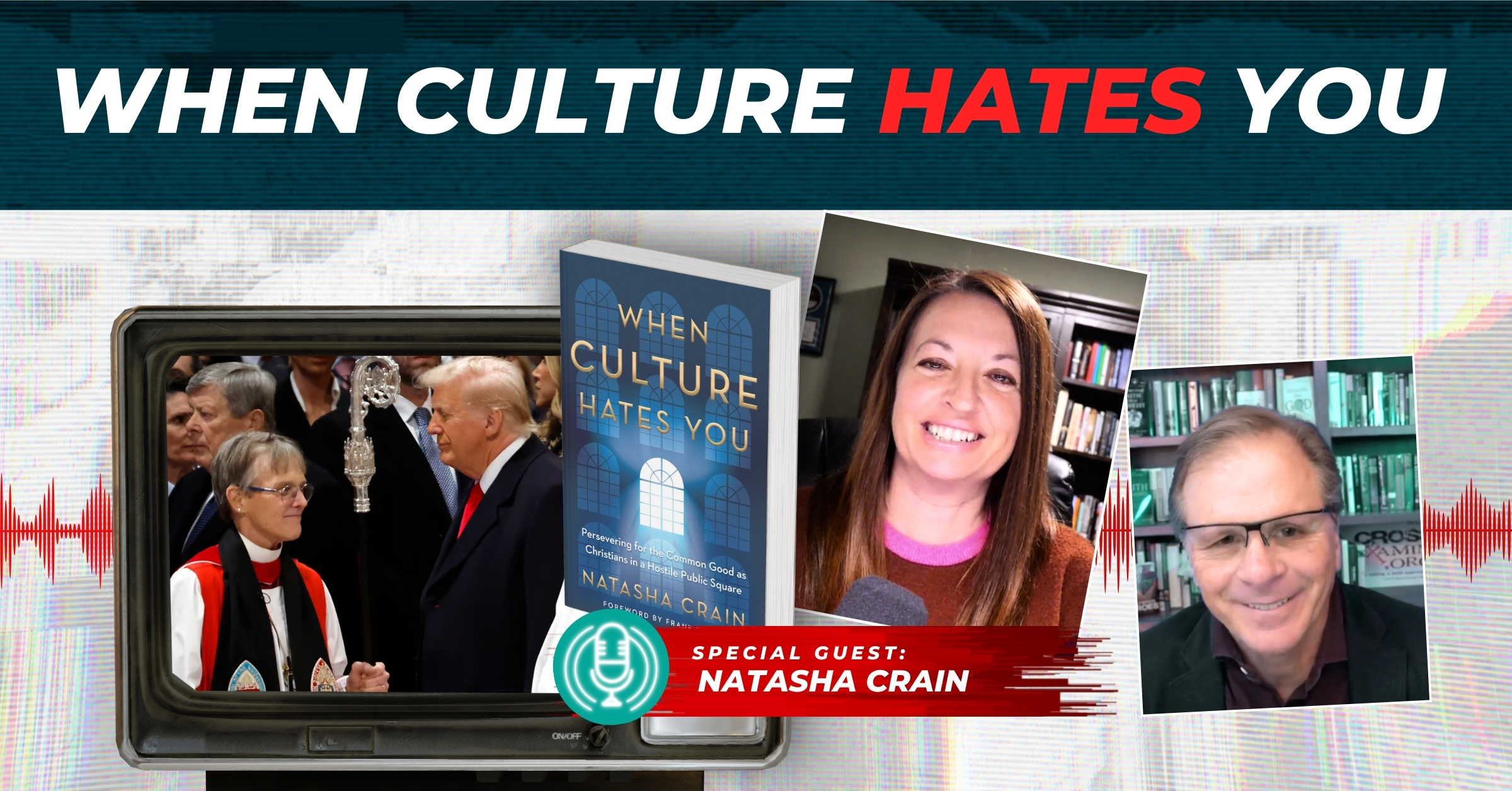Dangerous Homefront, part 2: NT Prooftexts we Know and Love
In part 1 of this series, we looked at a few Old Testament passages that people often misinterpret. In part 2 we shift to the New Testament. It’s worth noting that sometimes the error is just an innocent mistake. It’s not always from bad intentions, or false teachers, or heretical theology. Sometimes there are malicious forces at work here, but often it’s just well-meaning people getting confused about what the Bible says. The list of verses below is just a sample of commonly misinterpreted texts. There are many more too choose from, but I’m willing to bet that if you are a church-goer you’ve heard at least one of these misinterpretations before.
Matthew 7:1
Judge not, lest ye be judged.
This is perhaps the most quoted verse of Scripture surpassing even John 3:16. The love of God is succinctly portrayed in the one-verse Gospel message of John 3:16 and this was considered a beautiful redeeming truth to be shared and enjoyed – perhaps more than any other verse until now. In recent times, the most prized message in Scripture is more often to abstain from “passing judgment.” So Matthew 7:1 has risen in popularity. But this anti-judgement verse does not promise freedom from judgment. For all will eventually be judged by God (Revelation 20:11-15). Nor does it even disbar judgment between believers (Matt. 18:15-20; 1 Cor. 5:12-13; 1 Tim. 1:20). Rather, in context, this verse cautions against hypocrisy. The immediate passage following this one chastises hypocrites who attempt to remove a speck from another man’s eye when all the time there is a plank in his own (Matt. 7:1-5). This verse communicates a boomerang effect to one’s actions consistent with the rest of the Sermon the Mount – and this verse is part of the Sermon on the Mount (Matthew 5-7).[1]. Scripture encourages Christians to judge sin, at least among believers – “let judgment begin with the church” (1 Peter 4:17). Now, Christians shouldn’t be condemning other people to hell, or acting on their own initiative (individually) to disbar people from becoming Christians. In those senses Christians “shouldn’t judge.” But Matthew 7:1 isn’t saying to never judge anyone else, it’s saying to never judge in this hypocritical and condemning ways. We should still use judgment to exercise church discipline, to administer righteous verdicts and punishments, to recognize and extinguish sin, to distinguish between truth and error, discern between wise and unwise, and identify good and evil.
Matthew 10:28
And fear not them which kill the body, but are not able to kill the soul: but rather fear him which is able to destroy both soul and body in hell.
The problem that rides on this verse is that Satan gets too much credit. One may think, from this verse, that Satan is the one to fear, the one who can “destroy both soul and body in hell.” This misunderstanding seems to be more the product of poor theology than malicious exegesis. For the One who is truly Lord over Hell is not Satan but God (1 Chron. 29:11-14; Ps. 103:19). God is sovereign over everything—hell included. Satan is but a prisoner; God is the warden (Job 1:6-12; Rev. 20:1-3, 10). God is to be feared above all else, above even Satan.
Matthew 18:19-20
Again I say unto you, that if two of you shall agree on earth as touching any thing that they shall ask, it shall be done for them of my Father which is in heaven. 20 For where two or three are gathered together in my name, there am I in the midst of them.
This little passage is one of the most victimized in all of Scripture. First, this verse is often used to justify all shades of “health and wealth” theology, namely the belief that God must give believers whatever they ask (no matter how self-centered it may be) as long as they ask God in groups. The second offense is a little more innocent. Christians often quote verse twenty as an invocation of God’s presence be it at prayer meetings, worship services, or whatever else. The answer to both of these problems is, again, context. Matthew 18:15-20 is about church discipline. And the reason the numbers “two or three” are mentioned is because those are the numbers of witnesses that would testify in the case of a legal or religious offense. To prevent “he said she said” arguments, two or three witnesses were brought forth to establish trustworthy testimony (Deut. 17:6; 19:15; 2 Cor. 13:1; 1 Tim. 5:19; Hebr. 10:28). Moreover, since only God has the ultimate authority to judge (Deut. 32:39; Rom. 12:19), any human judgment over other men was to be done with God’s conferred authority. And in these verses we see God conferring His authority for judgment only to groups of believers, that is, to a church, the “body of Christ.” God’s presence to creation is a universal fact (Ps 139:7-12; Jer. 23:23-24; Acts 17:27-28). So, He hardly needs to be invoked at prayer meetings or at church services (recognized, yes, but not invoked). His presence is mentioned here in reference to His conferring authority to believers for the exercising of judgment within the church.
Revelation 3:15-16
I know thy works, that thou art neither cold nor hot: I would thou wert cold or hot. 16 So then because thou art lukewarm, and neither cold nor hot, I will spue thee out of my mouth.
These verses do not mean that God prefers spiritual coldness (disbelief, hostility, inactivity, uselessness) to lukewarm spirituality (hypocrisy, casual Christianity). That interpretation would mean that God wills disbelief (or hostility, inactivity). Thus God not only permits disbelief, but He prefers it. That is, He wants it. This idea is dangerous enough in that it suggest that God is guilty of evil, but it also presents a stiff challenge to Scriptures such as 1 Timothy 2:4 which says, “[God] wants all men to be saved and to come to a knowledge of the truth.” Such a misinterpretation also suffers contextual blindness. John was addressing the wealthy Church of Laodicea which was inconveniently located south of Heiropolos, known for its therapeutic hot springs, and north of Colossae with its cold refreshing waters.[2] Laodicea, not having an adequate water source of its own brought water in from these outside sources. Thus the water they acquired was lukewarm and dirty by the time it reached them. John, therefore, is drawing the contrast between the therapeutic hot springs and the revitalizing cold springs–both good options–and between these two is the feted lukewarm water of Laodicea.
Revelation 3:20
Behold, I stand at the door, and knock: if any man hear my voice, and open the door, I will come in to him, and will sup with him, and he with me.
This verse is usually treated as an evangelistic invitation, however the context reveals that John is still talking to the Church at Laodicea. That is, John is addressing believers. This knocking and calling is not unto salvation, for that much is already assured to these believers. Instead the invitation is to a deeper fellowship with God.
Stay tuned for Parts 3 in this series!
Endnotes
[1] This boomerang affect is visible in Matthew 6:14-15, “For if ye forgive men their trespasses, your heavenly Father will also forgive you: But if ye forgive not men their trespasses, neither will your Father forgive your trespasses” (See also Matt. 7:2, 12).
[2] Robert H. Mounce, The Book of Revelation Rev. Ed. in The New International Commentary on the New Testament (Grand Rapids: Eerdmans, 1998), 109-10.
Recommended resources related to the topic:
Counter Culture Christian: Is the Bible True? by Frank Turek (Mp3), (Mp4), and (DVD)
The New Testament: Too Embarrassing to Be False by Frank Turek (DVD, Mp3, and Mp4)
Why We Know the New Testament Writers Told the Truth by Frank Turek (DVD, Mp3 and Mp4)
Oh, Why Didn’t I Say That? Is the Bible Historically Reliable? by Dr. Frank Turek DVD, Mp4, Mp3 Download.
How to Interpret Your Bible by Dr. Frank Turek DVD Complete Series, INSTRUCTOR Study Guide, and STUDENT Study Guide
How Philosophy Can Help Your Theology by Richard Howe (MP3 Set), (mp4 Download Set), and (DVD Set)
__________________________________________________________________________________________________________________________
John is a licensed minister with earned degrees from Charleston Southern (BA), Southern Evangelical Seminary (MDiv), and Southwestern Baptist Theological Seminary (ThM, PhD). His doctorate is in philosophy of religion, minoring in ethics. As a new addition to Crossexamined in 2023, John brings a wealth of experience to the team including debating atheists, preaching the Gospel, teaching apologetics in schools and churches, publishing books and articles, and creating websites. John is also a teaching fellow with Equal Rights Institute and president of Pella Pro-Life in his hometown of Pella, Iowa. There he resides with his lovely and brilliant wife Hillary Ferrer, founder of Mama Bear Apologetics. Together they specialize in cultural apologetics with an emphasis on family-based apologetic training.
Originally posted at: https://bit.ly/3r0C5qp











